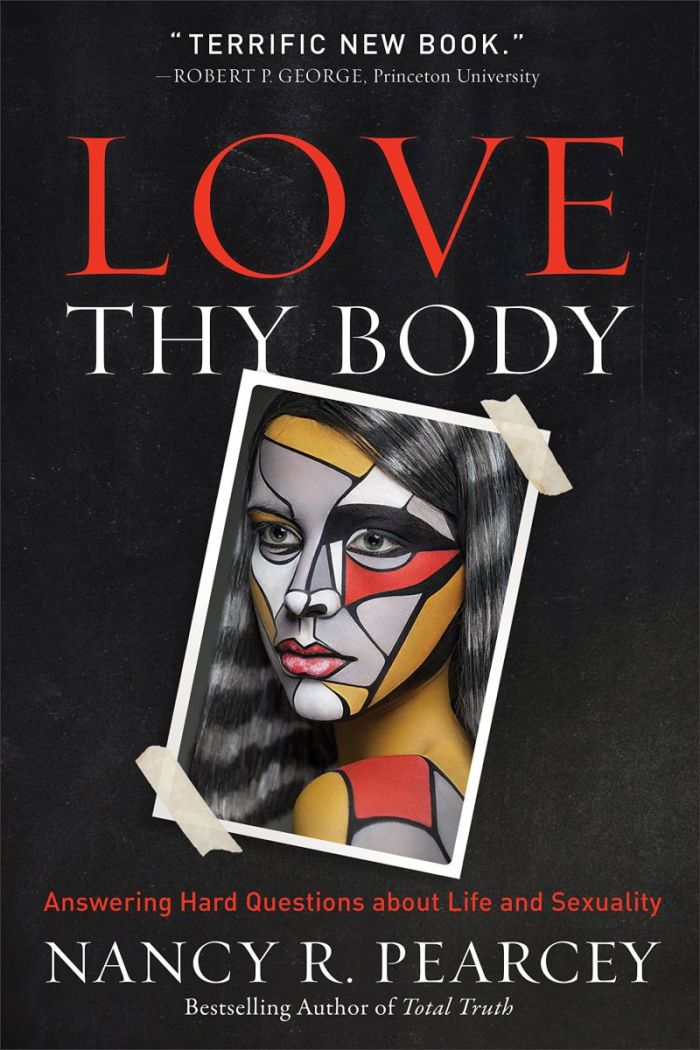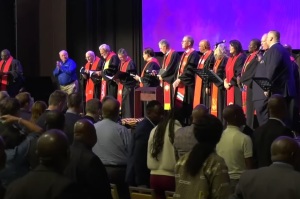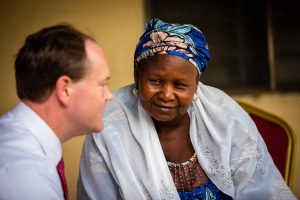Why does Christianity exalt the human body and secularism seek to destroy it?: Nancy Pearcey (Interview)
CP: Trans activists say they are discovering their truest selves, yet a growing number have come to regret how they have damaged their bodies with surgery and hormones. Do you think our individualistic culture of selfie-taking allowed them to gain so much ground so quickly? Or something else?

NP: The reason the transgender movement has gained ground so quickly is sheer logic: It is the logical extension of the same secular worldview with its denigration of the body.
The transgender narrative insists that gender has nothing to do with biological sex. As a BBC documentary puts it, at the heart of the debate is the idea that your mind can be "at war with your body." Kids down to kindergarten are being taught that their psychological identity has no connection to their body.
This is incredibly demeaning to the body.
The solution is to recover a higher view of the body. A 14-year-old girl who lived as a boy for three years, then reclaimed her identity as a girl, wrote an article saying the turning point came when she realized it's OK "to learn to love your body."
The article came out after I had already titled my book Love Thy Body, and my goal is to show that a biblical ethic can be presented in positive terms. We can reach out to people with a message of the value and dignity of the body and the possibility of internal harmony.
CP: Perhaps the most common objection we hear is, "Why not just let people live the way they want? They're not hurting anyone else." How should Christians respond?
NP: A free society is possible only if it recognizes some rights as pre-political. That means the state does not create them. Many pre-political rights are based on biology — and when we dismiss biology, we lose those rights.
The right to life itself used to be a pre-political right, something you have just because you're biologically a member of the human race. But the only way the state could legalize abortion was to rule that some humans do not qualify as persons with a right to legal protection. The state has claimed the authority to decide who has a right to live — based not on biology but only on its own legal fiat.
Marriage likewise used to be a pre-political right, based on the biological fact of reproduction. But the only way the state could treat same-sex couples the same as opposite-sex couples is to redefine marriage as a purely emotional commitment — which is what the Supreme Court did in its Obergefell decision. The state has claimed the authority to define which emotional relationships qualify as marriage — based not on biology but on its own say-so.
It used to be that gender followed metaphysically on your biological sex. But the only way the law can treat a trans woman (born male) the same as a biological woman is to redefine gender without regard to biology. That's why laws and policies are being imposed telling us whom we must call "he" or "she."
In every case, the state is taking dismissing biological realities and substituting legal fiat. And what the state gives, it can take away. The secular ethic is setting us up for control by an all-powerful political state.
CP: Spiritually speaking, what is ultimately the driving force behind this rampant hatred of the body and utter disregard for biology in our society?
NP: Ultimately our view of the body rests on our view of nature. The secular worldview starts with a Darwinian assumption that nature is the product of blind, undirected forces. We tend to think of materialism as a philosophy that places high value on the material world, because it claims that matter is all that exists. Yet in reality it places a low value on the material world as purely particles in motion with no higher purpose or meaning.
Listen to how the lesbian feminist Camille Paglia defends homosexuality. She acknowledges that nature made us male and female — that humans are a sexually reproducing species. But she asks, why not "defy" nature? After all, "Fate, not God, has given us this flesh. We have absolute claim to our bodies and may do with them as we see fit."
In other words, if our bodies are products of blind, undirected forces, then they convey no moral message, give no clue to our identity, have no inherent purpose that we are obligated to respect.
By contrast, a Christian ethic respects nature as a good gift from God. That's why it always takes into account the facts of biology, whether addressing abortion (the scientific facts about when life begins) or sexuality (the facts about sexual differentiation and reproduction).
CP: It's commonly thought that the Christian faith places little worth on our physical existence in this world — that it values only the spiritual realm. Many might be surprised by your claim that Christianity has a high view of the body. Why is that?
NP: It is true that some Christian traditions have placed low value on life in this world, but they are out of step with Scripture. For a clearer view, let's go back to early Christianity. When the Church was starting out, it was surrounded by philosophies that treated matter as evil and denounced the body as a "prison" — philosophies like Platonism, Manicheism, and Gnosticism. Gnosticism even taught that there are many levels of spiritual beings and it was the lowest-level deity, an evil deity, who created the material world.
In this cultural context, the claims of Christianity were revolutionary. For it teaches that matter was created not by an evil sub-deity but by the ultimate God, the Supreme Deity — and the material world is therefore intrinsically good. In Genesis, the created world is repeatedly affirmed to be good.
An even greater scandal, historically, was the incarnation — the idea that God Himself entered into the material realm and took on a human body. The incarnation is the ultimate affirmation of the dignity of the body.
And at the end of time, there will be a resurrection of the body, as the Apostle's creed affirms, along with a new Heavens and a new Earth. This is an astonishingly high view of the physical world. There is nothing else like it in any other philosophy or religion. Christians need to recover their own heritage.
CP: How might orthodox Christians get beyond the moralistic responses when it comes to matters of sex? While the moral and ethical dimensions are important, moral arguments increasingly fall on deaf ears. How can churches invite people into the biblical, and ultimately better vision for sexuality?
NP: The reason the Church's message sometimes comes across as mostly negative is that to some degree, the early Christians absorbed elements of the surrounding philosophies, and we are still dealing with the consequences. We even have a label for it: We call it the sacred/secular divide — the idea that spiritual realm is good and important, while the secular realm is a necessary evil.
One thing that has surprised me when I hear from readers of Love Thy Body or read customer reviews on Amazon is how many are saying something like this: I picked up your book hoping to learn handy arguments for current issues. But what I discovered is that it is transforming me. It is showing me that my own views of the body were less than biblical — that I was more trapped in the sacred/secular divide than I realized.
To craft an effective message for the secular world today, Christians themselves need to discover that the biblical view of the body is actually more appealing, more attractive, more affirming, than the secular ethic.





























